#Qu Yuan(屈原)
Text
[Hanfu · 漢服]Chinese Warring States period(475–221 BC) Traditional Clothing Hanfu-Life of Qu Yuan(屈原)
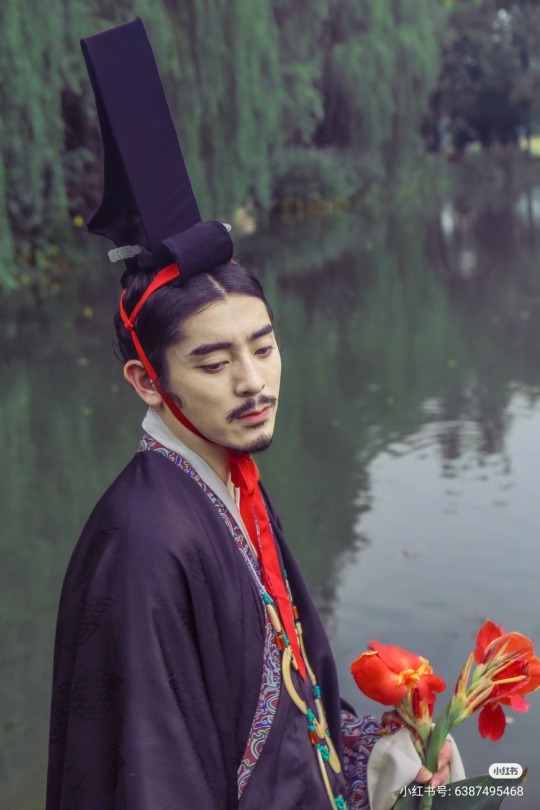
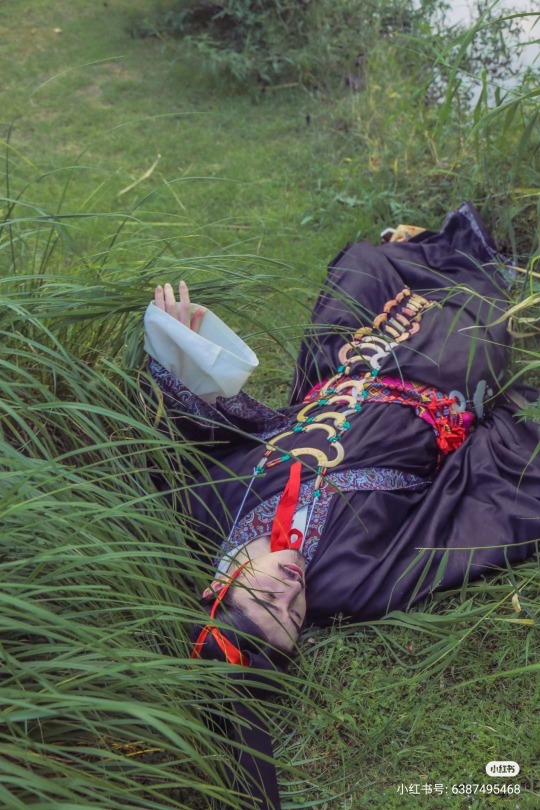
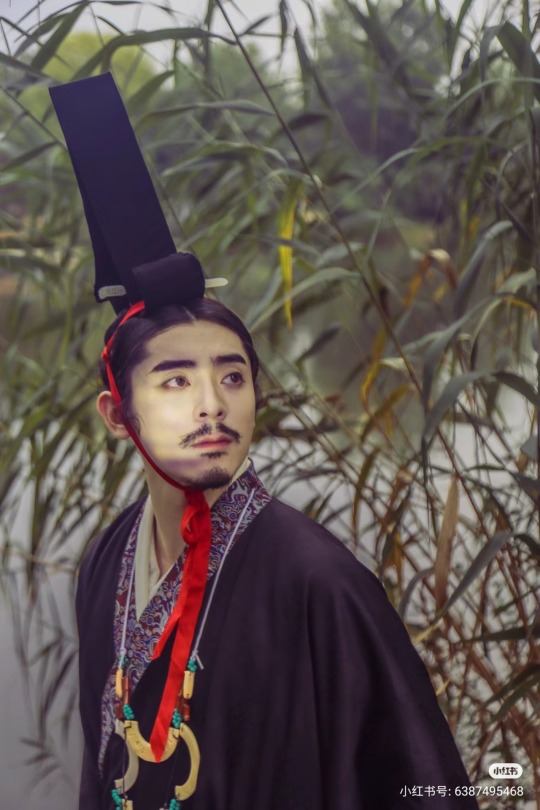
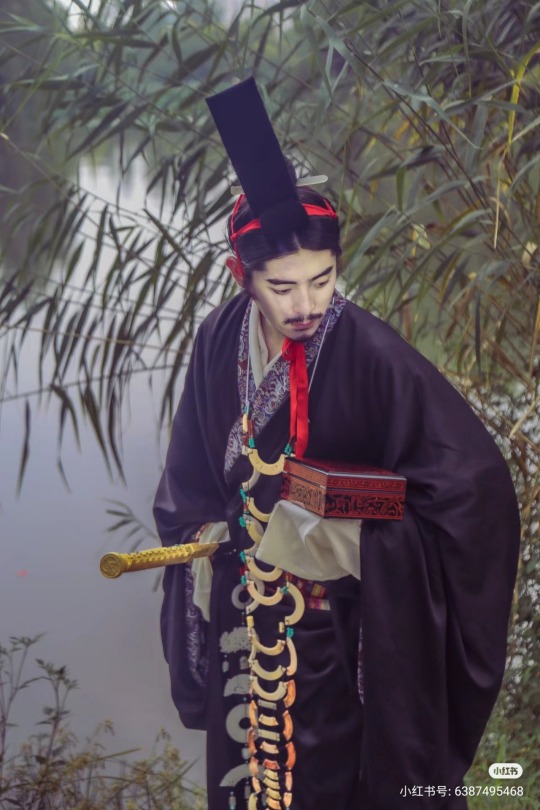
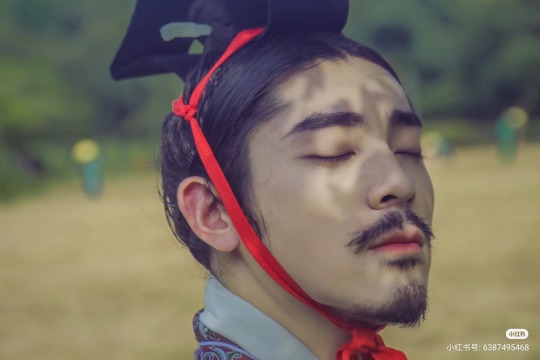
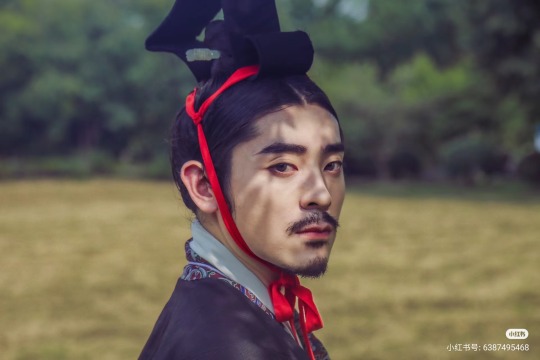
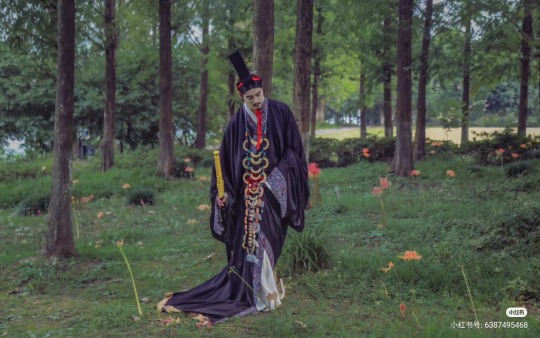
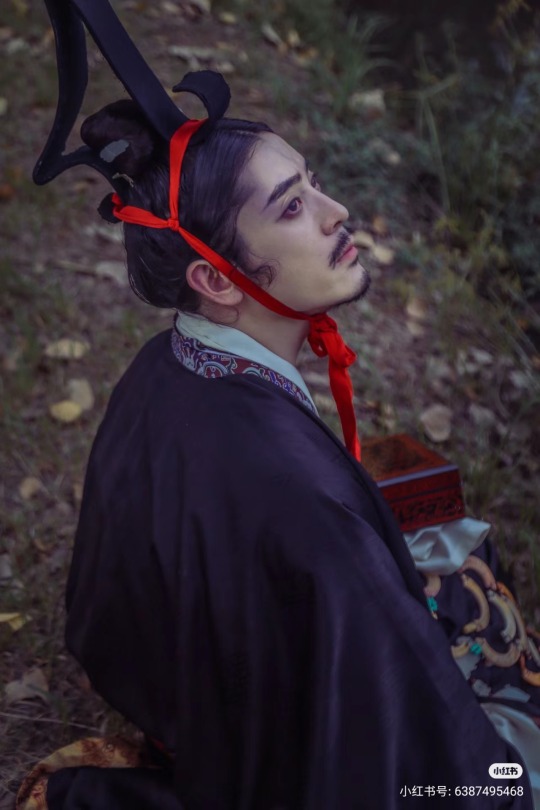
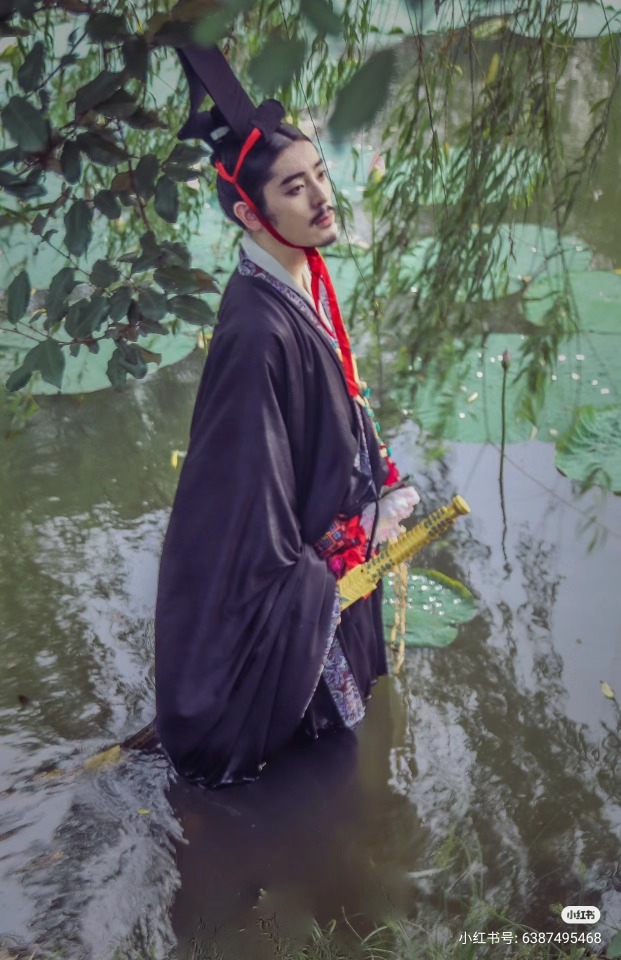
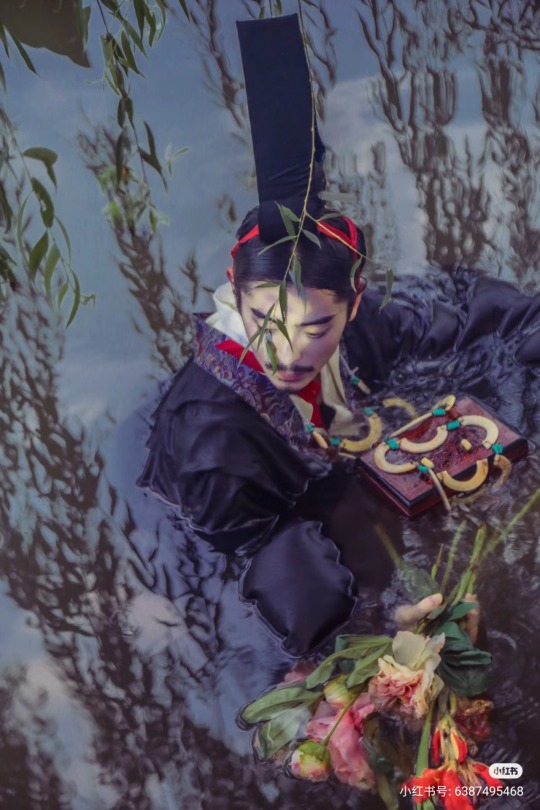
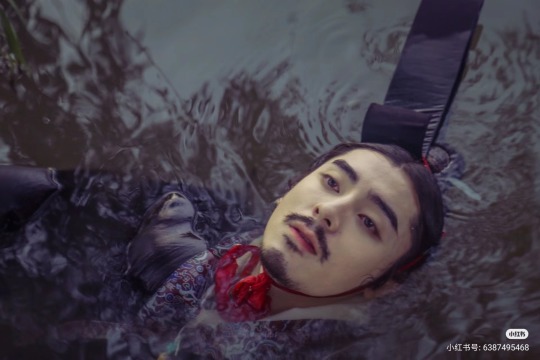
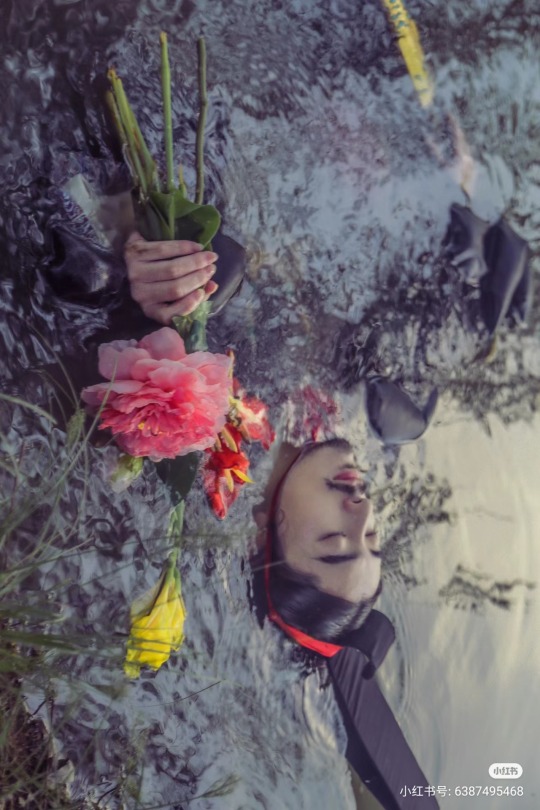
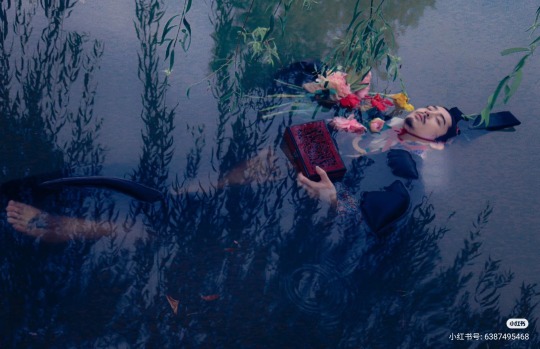
【Historical Artifact Reference】:
China Warring States period (475-221 BC):Silk painting depicting a man riding a dragon (人物御龍帛畫)
it was discovered in the Zidanku Tomb no. 1 in Changsha, Hunan Province in 1973. Now in the Hunan Museum
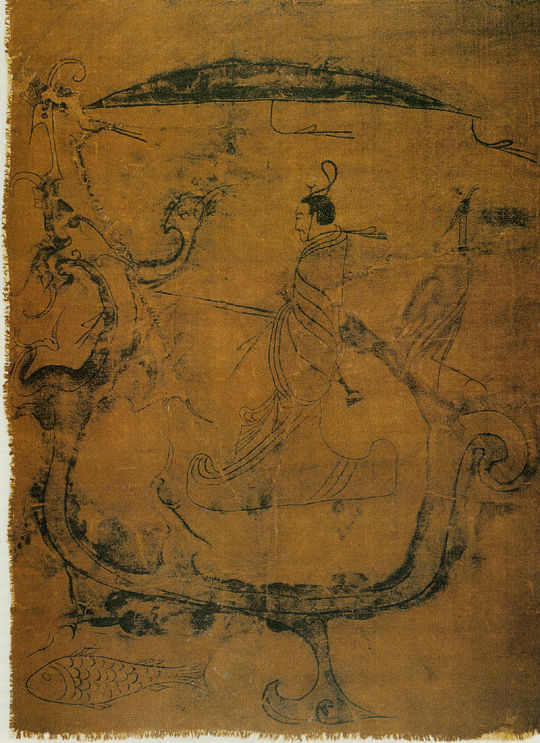
A man with a sword is riding a dragon by holding the rein. The dragon's body was given the shape of a boat. A little egret is standing at the tail of the dragon. A carp under the dragon is leading the way. The umbrella in the top middle of the picture shows the owner's nobility. The work has become associated with the Chu poet Qu Yuan’s famous verse from his poem Shejiang (涉江, Setting foot in the river), ‘Carrying a long sword with weird colour; Wearing a qieyun–styled high cap.” (帶長鋏之陸離兮, 冠切雲之崔嵬)
Western Zhou Dynasty seven-huang jade pendant with linked beads/西周七璜联珠组玉佩

About Qu Yuan(屈原)
Qu Yuan (c. 340 BC – 278 BC)was a Chinese poet and aristocrat in the State of Chu during the Warring States period. He is known for his patriotism and contributions to classical poetry and verses, especially through the poems of the Chu Ci anthology (also known as The Songs of the South or Songs of Chu): a volume of poems attributed to or considered to be inspired by his verse writing. Together with the Shi Jing, the Chu Ci is one of the two greatest collections of ancient Chinese verse. He is also remembered in connection to the supposed origin of the Dragon Boat Festival.
Historical details about Qu Yuan's life are few, and his authorship of many Chu Ci poems has been questioned at length.[4] However, he is widely accepted to have written "The Lament," a Chu Ci poem. The first known reference to Qu Yuan appears in a poem written in 174 BC by Jia Yi, an official from Luoyang who was slandered by jealous officials and banished to Changsha by Emperor Wen of Han. While traveling, he wrote a poem describing the similar fate of a previous "Qu Yuan."Eighty years later, the first known biography of Qu Yuan's life appeared in Han dynasty historian Sima Qian's Records of the Grand Historian, though it contains a number of contradictory details.
Life of Qu Yuan(屈原)
The only surviving source of information on Qu Yuan's life is Sima Qian's biography of him in Records of the Grand Historian (Shiji), although the biography is circumstantial and probably influenced greatly by Sima's own identification with Qu.Sima wrote that Qu was a member of the Chu royal clan and served as an official under King Huai of Chu (reigned 328–299 BC).
During the early days of King Huai's reign, Qu Yuan was serving the State of Chu as its Left Minister. However, King Huai exiled Qu Yuan to the region north of the Han River, because corrupt ministers slandered him and influenced the king.Eventually, Qu Yuan was reinstated and sent on a diplomatic mission to the State of Qi. He tried to resume relations between Chu and Qi, which King Huai had broken under the false pretense of King Hui of Qin to cede territory near Shangyu.
During King Qingxiang's reign, Prime Minister Zilan slandered Qu Yuan.[9] This caused Qu Yuan's exile to the regions south of the Yangtze River. It is said that Qu Yuan returned first to his home town. In his exile, he spent much of this time collecting legends and rearranging folk odes while traveling the countryside. Furthermore, he wrote some of the greatest poetry in Chinese literature and expressed deep concerns about his state. According to legend, his anxiety brought him to an increasingly troubled state of health. During his depression, he would often take walks near a certain well to look upon his thin and gaunt reflection in the water. This well became known as the "Face Reflection Well." On a hillside in Xiangluping (at present-day Zigui County, Hubei Province), there is a well that is considered to be the original well from the time of Qu Yuan.
In 278 BC, learning of the capture of his country's capital, Ying, by General Bai Qi of the state of Qin, Qu Yuan is said to have collected folktales and written the lengthy poem of lamentation called "Lament for Ying". Eventually, he committed suicide by wading into the Miluo River in today's Hunan Province while holding a rock. The reason why he took his life remained controversial and was argued by Chinese scholars for centuries. Typical explanations including martyrdom for his deeply beloved but falling motherland, which was suggested by the philosopher Zhu Xi of the Song dynasty, or feeling extreme despair to the situation of the politics in Chu while his lifelong political dream would never be realized. But according to "Yu Fu," widely considered to be written by Qu himself or at least, a person who was very familiar with Qu, his suicide was an ultimate way to protect his innocence and life principles.[citation needed]
Qu Yuan is said to have expressed his love for the ruling monarch, King Huai of Chu, through several of this works, including "The Lament" and "Longing for Beauty".
Dragon Boat Festival/端午节
Popular legend has it that villagers carried their dumplings and boats to the middle of the river and desperately tried to save Qu Yuan after he immersed himself in the Miluo but were too late to do so. However, in order to keep fish and evil spirits away from his body, they beat drums and splashed the water with their paddles, and they also threw rice into the water both as a food offering to Qu Yuan's spirit and also to distract the fish away from his body. However, the legend continues, that late one night, the spirit of Qu Yuan appeared before his friends and told them that he died because he had taken himself under the river. Then, he asked his friends to wrap their rice into three-cornered silk packages to ward off the dragon.
These packages became a traditional food known as zongzi, although the lumps of rice are now wrapped in leaves instead of silk. The act of racing to search for his body in boats gradually became the cultural tradition of dragon boat racing, held on the anniversary of his death every year. Today, people still eat zongzi and participate in dragon boat races to commemorate Qu Yuan's sacrifice on the fifth day of the fifth month of the traditional lunisolar Chinese calendar.
--------
Recreation Work by : @晴南
Xiaohongshu🔗:http://xhslink.com/CU2x9J
--------
#chinese hanfu#Warring States period(475–221 BC)#Qu Yuan(屈原)#State of Chu#china history#chines history#hanfu#hanfu accessories#hanfu_challenge#chinese traditional clothing#china#chinese#chinese aesthetics#chinese historical fashio#漢服#汉服#中華風#晴南#Dragon Boat Festival/端午节
174 notes
·
View notes
Text
The Dragon Boat Festival or Duan Wu Jie (端午节), is also known as Duan Yang Jie (端阳节), which means “Upright Sun” or “Double Fifth” (重午/重五). Falling on the fifth day of the fifth lunar month around the summer solstice which happened to be 10th June 2024 this year. The festival is also commonly referred to as the Fifth Month Festival amongst the Chinese. Its origins can be traced to southern China, and festivities include boat races and eating rice dumplings. The festival had evolved from the practice of revering the river dragon, to the commemoration of Qu Yuan (屈原), a third-century poet and political figure of the state of Chu in ancient China.

Legends and Myths - River Dragon (蛟龙)
The dragon was initially viewed as the benevolent spirit of the waters. It exemplified the masculine principle or yang in the Chinese ideology of harmony. Among common folk, it was believed that the River Dragon (蛟龙) controlled the rain and was thus worshipped during the summer solstice. Requests would be made for a balanced rainfall – sufficient to ensure a good harvest, without over-abundance that would cause destructive flooding.

Legends and Myths - Qu Yuan (屈原)
Primitive worship of the river dragon was often practised during the summer solstice. The Dragon Boat Festival was associated with Qu Yuan’s story only in the second century. Qu Yuan (屈原) was a poet and a statesman for the Chu kingdom (楚国) during the Warring States Period (战国时代). He served in high office and he advocated a policy of aligning with other kingdoms against the dominant Qin. However, political intrigue led Lord Huai to banish Qu Yuan instead. The ministry was left in the hands of corrupt statesmen and Qu Yuan helplessly watched his motherland decline. Depressed, he penned beautiful, patriotic poetry such as Li Sao (离骚) which means Encountering Sorrow, an allegorical poem stating his political aspirations and Jiu Ge (九歌) or Nine Songs, which gained Qu Yuan great renown.
youtube
With his top adviser gone, the king fell for the trickery of the Qin and his kingdom was eventually conquered. Upon hearing that his kingdom’s capital had been overtaken by the Qin, Qu Yuan committed suicide by drowning himself in the Mi Luo River (汨罗江). As he was adored by people everywhere, the local people did everything in their power to try to either save Qu Yuan, or at the very least, to protect him in the afterlife.

Hereupon the legend varies. Some suggest that fishermen at the scene attempted to save their minister. Having failed, they sought to appease his spirit by throwing rice stuffed in bamboo stems into the river to prevent the fish from eating Qu Yuan’s body. Others say that the rice offerings were snatched by a river dragon and the rice had to be bundled in chinaberry leaves instead and tied with five different coloured silk threads in order to be effective. The triangular Rice Dumplings (粽子) thus became entwined with the festivities. Another version tells of farmers rowing out in dragon boats in their attempt to save Qu Yuan. Hence, Dragon Boat Racing (赛龙舟) has been held annually on the fifth day of the fifth lunar month, in honour of the memory of Qu Yuan.

Or if reading through a wall of texts is not your cup of tea, here is a pictorial guide to summarize on the history of Qu Yuan (屈原) and how we ended up celebrating Dragon Boat Festival (端午节) with dragon boat racing and rice dumplings on the fifth day of the fifth lunar month.

All images are from the internet. Selected text info from here.
#Dragon Boat Festival#端午节#农历五月初五#Qu Yuan#屈原#Rice Dumpling#粽子#Bamboo Leaf#Dragon Boat Racing#赛龙舟#Festival#Tradition#Chinese Culture#Video#Youtube#Food#Buffetlicious
46 notes
·
View notes
Text
poetry lines befitting MCS and XJY
These are mostly chinese tang shi and song ci poetry quotes, with a great biased amount from Su Shi because OP doesn't know better. Crude, 5-minute english translations below. There are lines I semi-made up or adapted from fandom/cpop songs (that is, most of Xiao Jingyan's lines), ngl OP is rather embarrassed of them because they aren't good at all looking back now but we'll just leave them here or else XJY would end up with zero quotes.

梅长苏 Mei Changsu
想那日束髪从军,想那日霜角辕门,想那日挟剑惊风,想那日横槊凌云。 ——夏完淳
Think to the day I tied back my hair and enlisted. Think to the day the horn rang at the frostbitten tents, think to the day I danced my sword making the sound that deafens the wind. Think to the day I took to the lance, and it pierced through the skies, rising higher than the clouds. — Xia Wanchun
将士百战身名裂。 向河梁、回头万里,故人长绝。 易水萧萧西风冷,满座衣冠似雪,正壮士、悲歌未彻。 ——辛弃疾
The warrior fights a hundred battles, yet what remains is his severed reputation. He looks to the bridge over the river, thousands of miles back, past acquaintances forever gone. In another life, over the howling of the west wind and the cold Yi rivers, the banquet sits, clothes adorned in snowlike white. The courageous man strides through the blizzard, the song of lament never ceasing. — Xin Qiji
零落成泥碾作尘,只有香如故。 ——陆游
The plum blossoms wither and drift to the ground, crushed into earthly soil and dust. The prevailing fragrance is what remains. — Lu You
亦余心之所善兮,虽九死其犹未悔。 ——屈原
So long as this is what my heart longs for and treasures, though I die nine deaths, my heart does not regret. — Qu Yuan
君臣一梦,今古空名。 ——苏轼
Lords and lieges ebb into nothing but a dream; in the river of time transcending present and past vain titles remain, cast into the void. — Su Shi
无波真古井,有节是秋筠。 ——苏轼
The heart is at peace like the ancient well that does not ripple; the integrity is as the autumn bamboos, steadfast and unfaltering. — Su Shi
舳舻千里,旌旗蔽空,酾酒临江,横槊赋诗。 ——苏轼
The warship moves a thousand miles, ensigns enshrouding the sky. He pours out wine by the riverside, holds out his lance, and writes verses as he speaks. — Su Shi
对一张琴,一壶酒,一溪云。 ——苏轼
Facing but a guqin, a jug of wine, a stream of cloud. — Su Shi
江山如画,是我心言。 ——风起时
The rivers and mountains of the kingdom outstretches before me, as moving as in art: this is my heart’s will. — from the song “Feng Qi Shi”, when the wind blows
战骨碎尽志不休,冰心未改血犹殷。 ——改自《赤血长殷》、王昌龄
Bones completely crushed from the battle, yet aspirations unwavering. The heart has not changed; the blood flows red still. — adapted from the song “Chi Xue Chang Yan”, the noble blood flows red, and poet Wang Changling
袖手妙计权倾变,敛眸笑谈意了然。 ——改自《赤血长殷》
With folded arms, he devises labyrinthine strategies. The sceptre of power sways and shifts. He shrouds his gaze modestly, and in conversations of small smiles, he discerns the intention of men. — adapted from the song “Chi Xue Chang Yan”, the noble blood flows red

萧㬌琰 Xiao Jingyan
潜龙一朝御风翔,长歌挽弓射天狼。 ——《长喑》
The submerged dragon rises one day to ride the winds. Singing high and long; the bow is drawn pointed at the invading Sirius. — from the song “Chang Yin”, the Long Darkness found here
挑灯殿阙思悄然,闻钤行宫寝无眠。 ——改自白居易
Awashed in the raised lamps of the imperial palace, thoughts whisper in grievance. The bell rings at the Jiu’an grounds, and he lies abed sleepless. — adapted from The Song of Everlasting Sorrow by Bai Juyi
驰骋沙场繁华梦,谈笑鸿儒君臣纲。 ——改自《致陛下书》、刘禹锡
Dreams soar in the flurrying gallops of the battlefield, flourishing dreams of splendour and joy. In pleasant dialogue with scholars, civility obliges polite smiles into the etiquette of lords and lieges. — adapted from the song “Zhi Bi Xia Shu”, a letter to Your Majesty, and Liu Yuxi
铁马并辔封疆,几回魂梦游;更鼓落夜未央,笔下兴亡断。 ——取自《长喑》、《赤血长殷》
Armoured horses riding in parallel at the borderlands — how many times has the soul wandered to such dreams of the past. The hourly drums sound ceaseless across the long night; under the emperor's brush, the fate of prosperity and declination writes. — adapted from the song “Chang Yin”, the Long Darkness found here, and “Chi Xue Chang Yan”, the noble blood flows red
揽尽山河只手倾,昂冕袖手瞰苍生。 ——改自《长喑》
The future of his kingdom sweeps into a tilt of his hand. With crown upheld, he folds his arms in his sleeves awatching humanity. — adapted from the song “Chang Yin”, the Long Darkness found here
咫尺抚眉峰,万丈叠远峰;梦底枕笑纹,惊风掀水纹。 ——《致陛下书》
Up close, the furrowed brows are smoothed. Ten thousands of feet stretch before him, converging into mountains at a distance. In the deepest dreams, the markings of a smile lie; he stirs up the wind which marks and rips tides in the tumultuous waters. — adapted from the song “Zhi Bi Xia Shu”, a letter to Your Majesty

Two (three) things to note:
My dying obsession with Su Shi, sorry I can’t help it that perhaps over half of the all the poetry I know is from him;
To be really fair, my favourite description of Mei Changsu is 运筹帷幄之中,决胜千里之外, used in describing Zhang Liang in Si Maqian's Records of the Grand Historian. He orchestrates masterplans in the tent of the army; he determines the victory of the battle from afar, thousands of miles from the front.
As for my favourite depiction of Lin Shu, it is definitely Su Shi’s description of Cao Cao: 舳舻千里,旌旗蔽空,酾酒临江,横槊赋诗。 The warship moves a thousand miles, ensigns enshrouding the sky. He pours out wine by the riverside, holds out his lance, and writes verses as he speaks. Xin Qiji’s verse above just fits the entire story of Mei Changsu so much, it deserves a mention.
I was assembling/making these lines up for something back then and so just listed whatever came to mind (for reasons I know not I kept on listing stuff for MCS, but maybe XJY was the typical good emperor kind of person so wasn't as inspiring coming up with quotes for him).
If there are lines of poetry you find really befitting the two characters, we're more than interested starting a thread here just for that purpose.
#chinese language#chinese poetry#su shi#nif#nirvana in fire#classical chinese poetry#langya bang#lang ya bang#mei changsu#xiao jingyan#jingsu#fate creates#fate translates#fate's analysis
35 notes
·
View notes
Text
An Introduction to Cu Ci 楚辞 (A combined meta between 2HA, Blood of Youth, SHL, MDZS/CQL and Thousand Autumns)
If you’re familiar with Chinese historical media, you might have been familiar with the following terms.
九歌 (Jiu Ge/Nine Songs - Chu Wanning’s qin (2HA), Luo Qingyang’s Blade (Blood of Youth),
天问 (Tian Wen/Heavenly Questions) - Chu Wanning’s Whip, SHL’s opening song
怀沙 (Huai Sha/Embracing Sand) - Chu Wanning’s third weapon
招魂 (Zhao Hun/Summoning Spirits) - MDZS audio drama insert song, spell used in 2HA, mentioned in the opening of CQL episode 1.
国殇 (Guo Shang/National Matyr) - Luo Qingyang’s sword skill
礼魂 (Li Hun/Cermonial Spirit) - Luo Qingyan’s spirit.
东君 (Dong Jun/Eastern Gentleman) - a character in Blood of Youth
渔夫 (Fisherman) - Wen Kexing quotes a line from this.
离骚 (Encountering Sorrow/Li Sao) - Briefly quoted in Thousand Autumns
But did you guys know that it all these come from the same source? 😂😂
These are various works by the Qu Yuan 屈原, who was a poet and statesman of Chu 楚 during the Warring States period. And yes, this is the same Chu 楚, as that of Chu Waning’s surname. I’m guessing it was a shout out to the poet.
Qu Yuan was known for his patriotism and various contributions to Chinese classical poetry. The above are part of the Cu Ci 楚辞 (Songs of Chu), a collection of poems
I’ll talk about these various parts in detail but could you imagine how excited I was to learn that the inspiration behind Chu Wanning and Luo Qingyang came from the same source? 😍😍
29 notes
·
View notes
Text
忘川风华录 Cheat Sheet - PRE-QIN
Character list for the music project/game Wang Chuan Feng Hua Lu
Created solely for my own convenience
All images etc taken from the game's official website
Info taken from Wikipedia
Mao-mao not included, sowwy
姜太公 | Jiang Taigong | Khương Thái Công
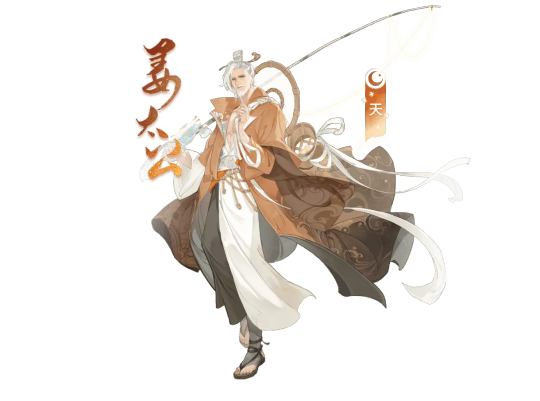
1128 BC - 1015 BC
Also known as Jiang Ziya / Taigong Wang / Lǚ Wang
General, strategist to King Wu of Zhou, helped establish the Zhou Dynasty
Song: Gui Diao Yin
Also appears in: Kuang Gu Hui Xiang
In-game rarity: 天
屈原 | Qu Yuan | Khuất Nguyên
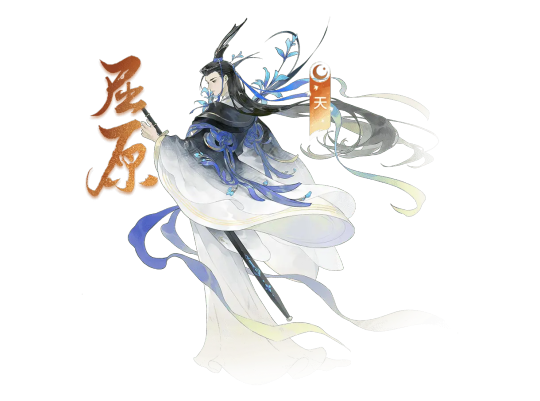
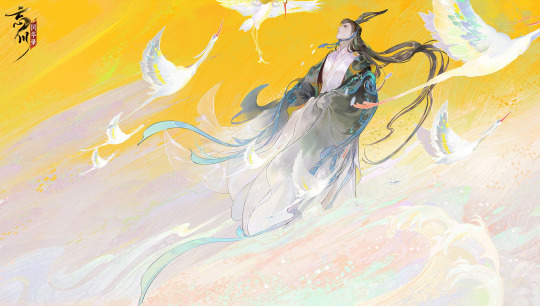
c. 340 BC – c. 278 BC
Poet, author of Li Sao, one of the first verse writers in ancient China
Theme song: N/A
Also appears in: Kuang Gu Hui Xiang
In-game rarity: 天
韩非 | Han Fei | Hàn Phi
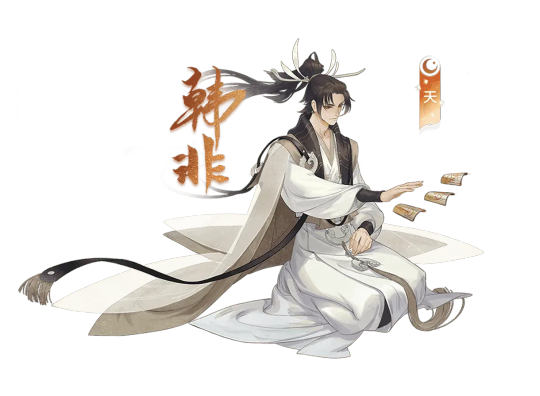
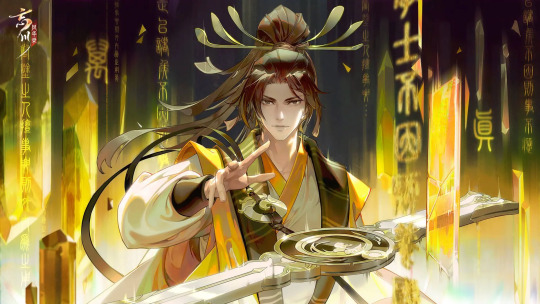
c. 280 BC – c. 233 BC
Philosopher of the Legalist school, author of Han Feizi
Song: Shi Fei
Also appears in: Kuang Gu Hui Xiang
In-game rarity: 天
西施 | Xi Shi | Tây Thi
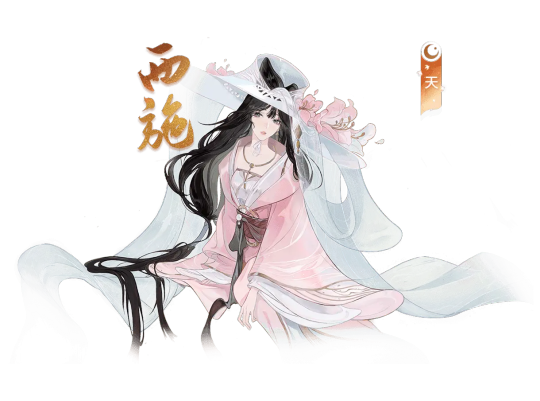
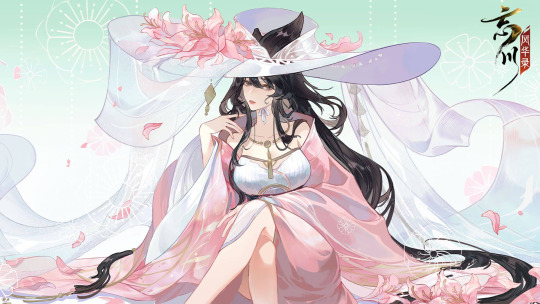
One of ancient China's Four Beauties
Given to Fuchai which allegedly led to the fall of the State of Wu
Song: Qing Guo
In-game rarity: 天
范蠡 | Fan Li | Phạm Lãi
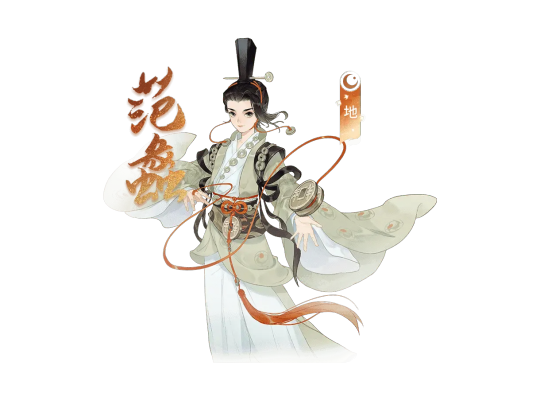
Strategist of Yue (Warring States)
(According to legends) discovered Xi Shi and later lived with her after the fall of Wu
Song: N/A
In-game rarity: 地
荆轲 | Jing Ke | Kinh Kha
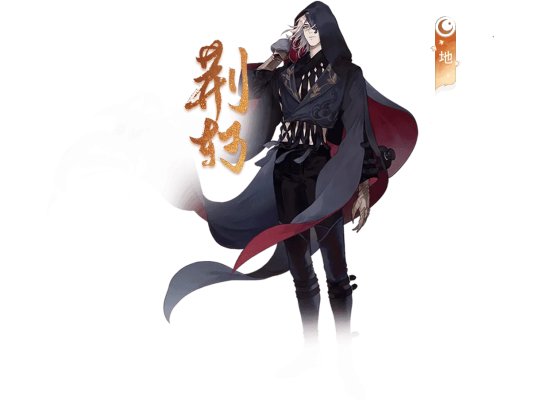
Died 227 BC
Retainer of Yan (Warring States)
Attempted to assassinate Qin Shi Huang
Song: Yi Shui Jue
Also appears in: Kuang Gu Hui Xiang
In-game rarity: 地
高渐离 | Gao Jianli | Cao Tiệm Ly
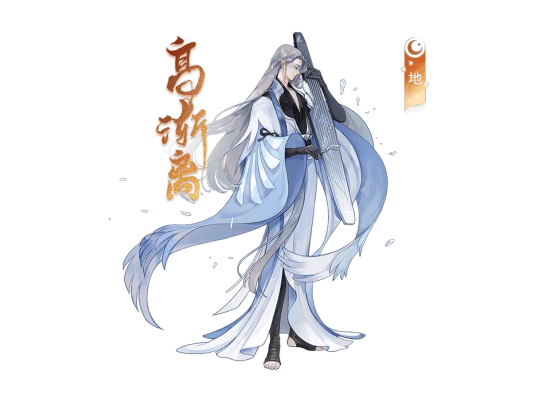
Musician of Yan (Warring States), friend of Jing Ke
Also attempted to assassinate Qin Shi Huang
Song: Yi Shui Jue
Also appears in: Kuang Gu Hui Xiang
In-game rarity: 地
干将 | Gan Jiang | Can Tương
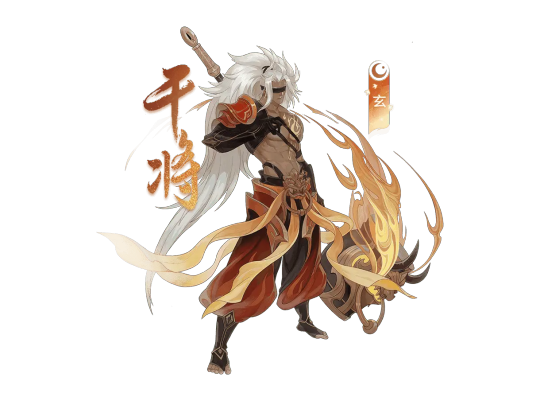
Part of a swordsmith couple during the Spring and Autumn period
Forged a pair of swords that also bore their names
Song: Wei Jian
Also appears in: Kuang Gu Hui Xiang
In-game rarity: 地
夫差 | Fuchai | Phù Sai
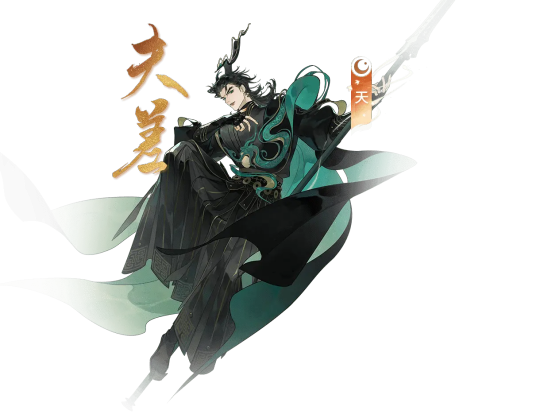
Reigned 495 BC – 473 BC
Last king of Wu (Spring and Autumn period)
Responsible for capturing and releasing Goujian, leading to the fall of his state
Song: Wen Jian Chun Qiu
Also appears in: Kuang Gu Hui Xiang
In-game rarity: 天
勾践 | Goujian | Câu Tiễn
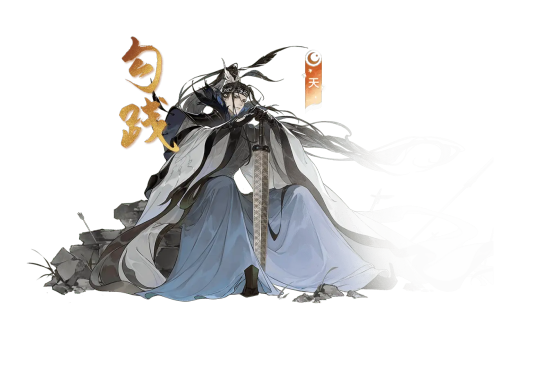
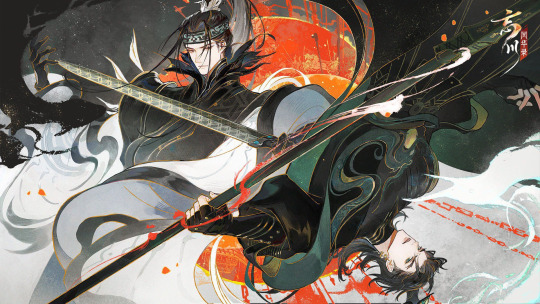
Reigned 496 BC – 465 BC
King of Wu (Spring and Autumn period)
Exacted revenge on and defeated Wu
Song: Wen Jian Chun Qiu
Also appears in: Kuang Gu Hui Xiang
In-game rarity: 天
伍子胥 | Wu Zixu | Ngũ Tử Tư
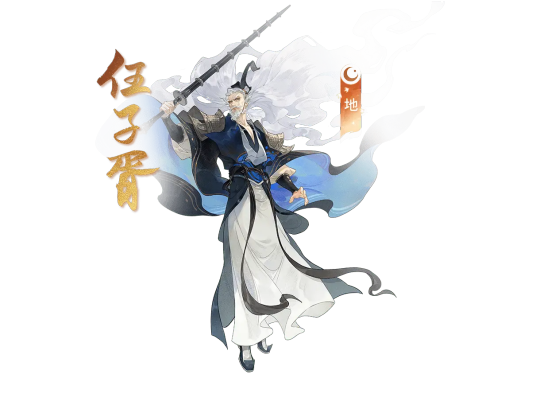
Died 484 BC
General and politician of Wu (Spring and Autumn period)
First served King Helü of Wu, was not entrusted by King Fuchai
Song: N/A
Also appears in: Wen Jian Chun Qiu
In-game rarity: 地
白起 | Bai Qi | Bạch Khởi
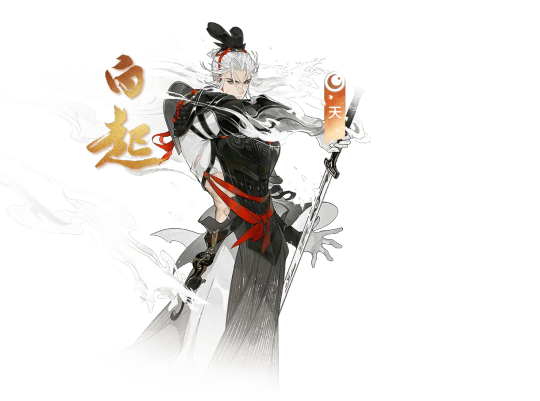
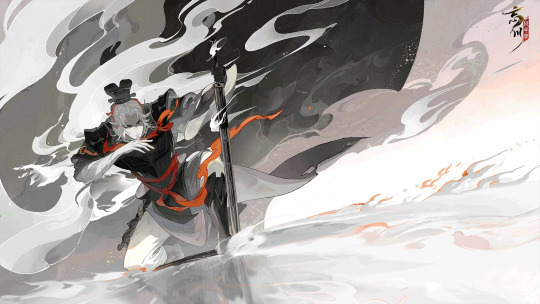

c. 332 BC –c. 257 BC
Military general of Qin (Warring States), whose victory paved way for the establishment of the Qin Dynasty
Extremely high kill count
Song: Qi Zhan Ling
Also appears in: Kuang Gu Hui Xiang
In-game rarity: 天
墨翟 | Mo Di | Mặc Địch
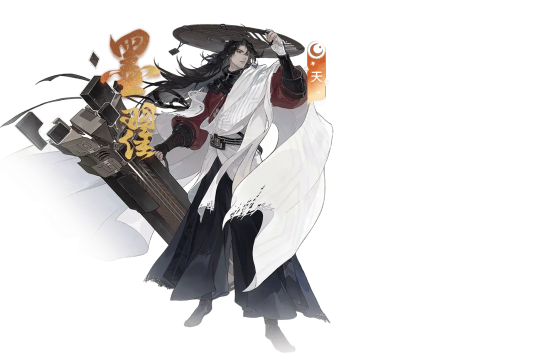
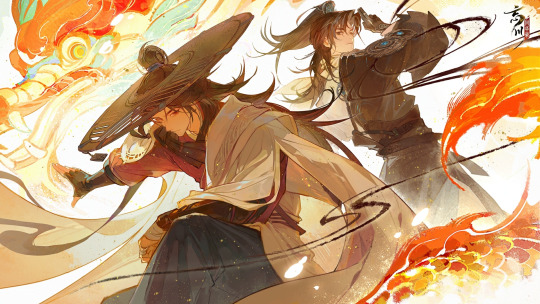
c. 470 BCE – c. 391 BCE
Also known as Mozi
Philosopher, founder of Mohism
Talented in carpentry
Song: Mo Yin Xia Sheng
In-game rarity: 天
公输班 | Gongshu Ban | Công Du Ban
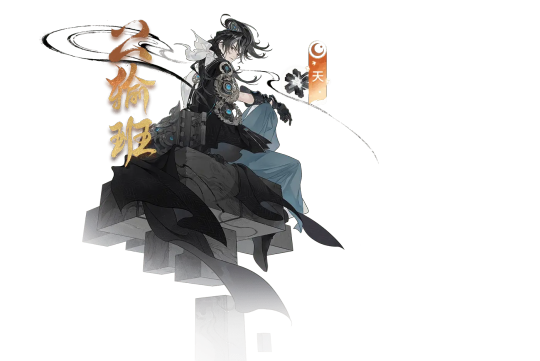
c. 507 BCE – 444 BCE
Also known as Lu Ban
Carpenter, engineer, inventor of several things including the saw
Song: N/A
Also appears in: Mo Yin Xia Sheng
In-game rarity: 天
庄周 | Zhuang Zhou | Trang Chu
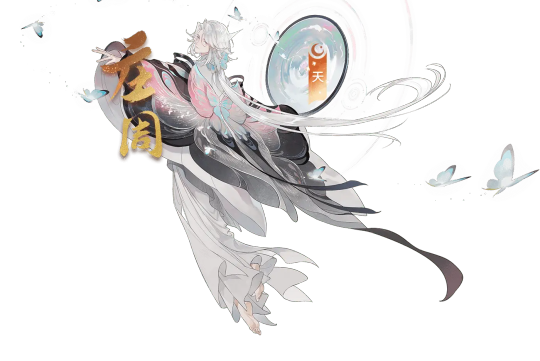
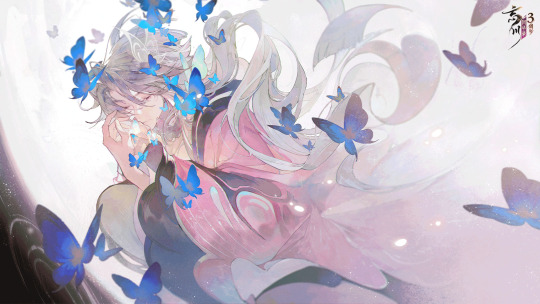
c. 369 BCE - c. 286 BCE
Also known as Zhuangzi / Chuang Tzu
Philosopher, author of Zhuangzi, established the foundation of Taoism
Song: N/A
In-game rarity: 天
2 notes
·
View notes
Text
[Episode transcript can be found here.]
国殇 Our Martyrs
屈原 Qu Yuan
(from the Nine Songs, Songs of Chu)
操吴戈兮被犀甲,车错毂兮短兵接。
旌蔽日兮敌若云,矢交坠兮士争先。
凌余阵兮躐余行,左骖殪兮右刃伤。
霾两轮兮絷四马,援玉枹兮击鸣鼓。
天时怼兮威灵怒,严杀尽兮弃原野。
出不入兮往不反,平原忽兮路超远。
带长剑兮挟秦弓,首身离兮心不惩。
诚既勇兮又以武,终刚强兮不可凌。
身既死兮神以灵,子魂魄兮为鬼雄!
grasping Wu pikes—wearing rhinoceros armour,
chariot axles enmeshing—short-swords joining.
banners blotting the sun—foes like clouds,
raining arrows twofold—men eager to be first.
my formation scattered—my line trampled,
my left horses dead—my right sword-gashed.
a duststorm for two wheels—traces a team of four,
“reinforcements!” the jade drumsticks—“attack!” the drums call.
the heavenly hour resents us—the mighty spirit rages,
sternly slaying first to last—hometown fields abandoned.
going but not coming—departing but not returning,
the plains untended—the roads unending.
bearing long swords—clutching Qin bows,
heads and bodies parted—hearts still untried.
indeed both courageous—and accompanied by Wu,
staunch to the end—broken by none.
bodies stopped in death—both spark and spirit,
steadfast souls—heroes among ghosts.
Further reading:
G. Sukhu, The Songs of Chu (2017)
#classical chinese poetry#poetry reading#translation#qu yuan#chuci#episodes#SoundCloud#b:episodes#p:qu yuan
4 notes
·
View notes
Text
何至於斯?
how we are here?
It's from an epic about fisherman and 屈原(qū yuán; BC. 343 ? ~ BC. 277 ?), title is 漁父辭(yú fù cí). This story came up in episode 3 and 7. Where Gu xiang asked Wen kexing who is 屈原 and Chao weining told Gu xiang incorrect version of 屈原's poem.And Gu xiang askes Wen kexing who is Qu yuan.

And in episode 3, you may find it below 👇

This poem has story and very famous as it has quoted in many different media in 漢字文化圈(chinese charater cultur boundaries). Historically he was a talented politician. As his sir name 屈(Qu) was the same as king's sir name in 楚(chu) so there are possibility he was a royal blood. When he lived there were 7 nations (齊; qí 楚; chǔ 燕; yàn 趙; zhào 魏; wèi 韓; hán 秦; qín) that wanted to unite china. 秦,楚,齊 were the most powerful countries, later 秦 united.
Actually you don't need to know these to understand the story. It would be a little helpful why it has used and may find hidden intension. Because when I first noticed 漁父辭, I somehow expected it would be a sad-ending. Because of the chaos around the nations, he followed his king in 楚, but his king was stupid and the other vassals hated and begrudged him of talent. With the chaotic status of 楚, his king died of not listening to 屈原. Later son of his king banished him for the death.
屈原 was still faithful for his country 楚, and had kept trying to save 楚, but no one listened. Finally, he tried suicide to tell for his king to listen and save the country. Unfortunately he didn't and 楚 had fallen. Funny that who had united those 7 nations, his grand mother was from 楚, who was 宣太后(xuān tài hòu; the queen of the Great).
This poem shows a person who had tried to save his most value, but there was no one to listen. The only thing he could do for them to listen was suicide. Sad thing is that even he died no one had listend and his precious nation fell. 屈原 is a model of loyalty. The story goes,
屈原旣放, 游於江潭, 行吟澤畔, 顔色憔悴, 形容枯槁。
屈原 had banished from 楚, wandering around watersides, talking to himself, lanky and futile.
漁父見而問之曰,子非三閭大夫與?何故至於斯?
A fisherman noticed him and asked, Were you not the dignitary of 楚? What had happened to be here at this point?
Then the fisher man was listening to lamenting of 屈原. 屈原 was saying how he could be suited with renegades and became a traitor. He could not forsake his fidelity. After the conversation, the fisher man sings based on 屈原's words.

滄浪之水淸兮 可以濯吾纓
if the water is clean I would wash my hat
滄浪之水濁兮 可以濯吾足
if the water is tuebid, I would wash my feet.
which means, whatever the water is, if it's clean he would follow if it is not he wouldn't associate. And this was on episode 3, where Zhou zishu had met Wen kexing again in the warterside. So I guess, Wen kexing might have known Zhou zishu's identity all along.
I guess Wen kexing intended as, what had happened to 天窗(tian chuang)? had something happend? that's why you're wondering around like that? Is there something you wouldn't bare anymore that's why you left?? and because of that Zhou zishu started to listen and be generous about Wen kexing. And the situation is rather similar with Zhou zishu and 屈原. So, who knows 漁父辭 may have guessed the tragic ending of the character.

This 漁父辭 reminds of Zhou zishu's story, there are parts alike to 屈原. The difference could be how a person can be active and passive. The story between Jin wang and Zhou zishu would had been similar to 屈原 and 楚王. It's really shame I would never know 🥲At some point I even think it would had been better if Zhou zishu died as a begger traveling where he wanted to do and go. The love and respect he got from people around aren't what they are but burdens. The affection from Wen kexing is too violent sometimes.

#山河令#word of honor#shan he ling#shl#산하령#배움이 짧아서 모르겠어#어부사#굴원#屈原#漁父#굴원이랑 주자서 스토리가 정말 너무 비슷해#어떻게든 사계산장 지켜보겠다고 고군분투했는데#결국 아무도 주자서생각 안해줌#그러게 대화를 좀 해..#혼자서 그러지 말고#제발 그 짐을 덜어 나누자#그걸 왜 혼자 다 지고있어 미련하게#ep32#ep 32#30화 넘어가면 자꾸 주자서맘이됨#우리 주자서 좀 생각해줘라#니네 목숨 다 필요 없다고 좀 놔줘라#짐에서 벗어나려고 칠규삼추정까지 박았는데#대체 왜 놔주질 않냐 차라리 그지로 죽는게 낫지#주자서학대극#주자서 좀 놔줘라#Let Zhou go#ep3#ep7
4 notes
·
View notes
Text
Those who forget their history will have no future
The post is machine translated
Translation is at the bottom
The collective is on telegram
⚠️ XI JINPING: LA CULTURA MILLENARIA CINESE È LA RADICE E L'ANIMA DELLA NAZIONE CINESE ⚠️
🇨🇳 il 22/06, si festeggia in Cina la Festa delle Barche Drago, una meravigliosa festività tradizionale che cade il 5° Giorno del 5° Mese del Calendario Lunare Cinese 🐲
😍 Le attività sono molteplici, gare sulle Barche Drago, mangiare zongzi, e ricordare gli antichi racconti sulla 端午节 del Poeta 屈原, che visse più di 2.000 anni fa 🐉
🚩 Il Presidente Xi Jinping, in qualità di Segretario Generale del Partito Comunista Cinese, ovvero il Partito del Popolo Cinese, che preserva e rappresenta l'orientamento della Cultura Cinese secondo la 三个代表 ha elogiato il Poeta 屈原, ricordando le sue parole, e incoraggiando gli intellettuali Cinesi nel campo dell'Arte e della Letteratura a creare opere che riflettano le voci del Popolo ❤️
⭐️ Nel 2016, il Compagno Xi Jinping citò l'antico poema popolare 离骚, utilizzando per ricordare ai membri del CPC di «rimanere fedeli allo Spirito della Missione Originaria del Partito Comunista», sottolineando l'importanza di essere «devoti nel Lavoro», «avere fede nella vittoria del Socialismo» e di essere pronti a «sacrificare tutto per ideali rivoluzionari che vanno più in alto del Cielo» 😍
🇨🇳 Dopodiché, il Presidente ha citato «我愿意为心中珍视的理想而死», «Morirei per l'Ideale che mi sta a cuore» di Qu Yuan, per incoraggiare le persone a perseguire l'eccellenza nel proprio campo 😘
🐉 Il Compagno Xi Jinping ha ricordato l'importanza dell'Eredità della Cultura Tradizionale Cinese, e ha dichiarato che il Popolo Cinese deve portare avanti l'eccellente e millenaria Cultura Cinese ed essere orgoglioso della propria Cultura 😍
💕 和谐 Armonia, 敬业 Dedizione e 爱国 Patriottismo sono valori fondanti che instillano un potente senso di coesione e fiducia nel Popolo Cinese, alimentando lo Spirito Cinese, ha ricordato Xi Jinping:
💬 «L'eccellente Cultura Cinese Tradizionae della Cina, creata dalla Nazione Cinese che si è estesa per migliaia di anni, costituisce la Radice e l'Anima della Nazione» 🤩
🇨🇳 Il Presidente ha ricordato come l'Armonia tra il Socialismo e la Cultura Cinese sia «l'ancora di salvezza spirituale della Cina», e ha sottolineato il suo orgoglio nel vedere la crescente popolarità delle feste tradizionali della Cina tra i giovani 🔥
🌸 Iscriviti 👉 @collettivoshaoshan
⚠️ XI JINPING: CHINESE THOUSAND YEARS OLD CULTURE IS THE ROOT AND SOUL OF CHINESE NATION ⚠️
🇨🇳 on 22/06, the Dragon Boat Festival is celebrated in China, a wonderful traditional holiday that falls on the 5th day of the 5th month of the Chinese Lunar Calendar 🐲
😍 The activities are varied, racing on Dragon Boats, eating zongzi, and remembering the ancient tales on 端午节 of the Poet's 屈原, who lived more than 2,000 years ago 🐉
🚩 President Xi Jinping, as General Secretary of the Communist Party of China, or the People's Party of China, which preserves and represents the orientation of Chinese Culture according to 三个代表 praised Poet 屈原, recalling his words, and encouraging Chinese intellectuals in the fields of Arts and Literature to create works that reflect the voices of the People ❤️
⭐️ In 2016, Comrade Xi Jinping quoted the ancient folk poem 离骚, using it to remind CPC members to "remain true to the Communist Party's Original Mission Spirit", stressing the importance of being "devotee in Work", " have faith in the victory of Socialism" and to be ready to "sacrifice everything for revolutionary ideals that go higher than Heaven" 😍
🇨🇳 After that, the President quoted Qu Yuan's «我愿意为心中珍视的理想而死», «I would die for the Ideal I cherish» by Qu Yuan, to encourage people to pursue excellence in their field 😘
🐉 Comrade Xi Jinping reminded of the importance of the Heritage of Traditional Chinese Culture, and said that the Chinese People should carry on the excellent ancient Chinese Culture and be proud of their own Culture 😍
💕 和谐 Harmony, 敬业 Dedication and 爱国 Patriotism are founding values that instill a powerful sense of cohesion and trust in the Chinese people, fueling the Chinese Spirit, Xi Jinping recalled:
💬 «China's excellent Traditional Chinese Culture, created by the Chinese Nation that has extended for thousands of years, constitutes the Root and Soul of the Nation» 🤩
🇨🇳 The President recalled how the Harmony between Socialism and Chinese Culture is "China's spiritual lifeline", and underlined his pride in seeing the growing popularity of China's traditional festivals among young people 🔥
🌸 Subscribe 👉 @collettivoshaoshan
#socialism#china#italian#translated#china news#communism#collettivoshaoshan#marxism leninism#xi jinping#marxist leninist#marxismo#marxist#marxism#asia news#chinese communist party#chinese culture
2 notes
·
View notes
Video
youtube
屈原《楚辭·離騷》
In honor of Dragonboat Festival, Chinese poet 屈原 Qu Yuan’s famous lyric poem 《离骚》 “Sorrow at Parting” set to music.
Dragonboat Festival
#mv#qu yuan#li sao#chu poetry#china#chinese#chinese culture#chinese history#dragonboat festival#离骚#屈原#楚辞#chinese song#winky
5 notes
·
View notes
Text
The legend of Qu Yuan (c. 340 – 278 BCE), the poet of tristia and itinera, and how the custom of zongzi eating and dragon boat racing on Duanwu have come to be associated with his sad tale.
On the fifth day of the fifth lunar month—端午 Duanwu—we commemorate the death of the poet-minister Qu Yuan 屈原.
Exiled from the kingdom of Chu for his fierce opposition to Qin (which did indeed demolish all, in its imperial ambition), he drowned himself in the Miluo River.

Legend has it that fishing boats set out looking for the much-beloved Qu Yuan. When he could not be found, food was thrown into the river to prevent fish from consuming his corpse.
Hence Duanwu is also known as the Dragon Boat Festival & sticky rice packets (zongzi) are eaten.
'The Songs of Chu' 楚辭, attributed to Qu Yuan (but more likely by multiple authors) are densively allusive poetic laments dating from the 3rd c BCE collapse of the Chu kingdom.
To quote David Hawkes, Chuci 楚辭are the poetry of tristia and itineria —the laments of exile.
Qu Yuan's 'Songs of Chu' are the laments of one born to "an age foul and murky"
Sighs come from me often
the heart swells within
sad that I and these times
never will be matched.
As it is then, as it is now.

Another version:
Duanwu 端午 marks the beginning of summer heat and pestilence, and the in southern China and throughout southeast Asia it was an occasion to fumigate the household and eat restorative foods wrapped in naturally antiseptic leaves.
The legend of Qu Yuan - the loyal minister in exile, wandering the Southland - then, was a Han Confucian repackaging of local folk customs.
One stayed as low profile as possible to steer clear of all the miasmic, pestilential forces —hence the need for mugwort and spells...
「五月五日天中節一切惡事盡消滅 急急如律令」
FIFTH DAY OF FIFTH LUNAR MONTH: ALL THINGS WICKED AND PESTILENT TO BE VANQUISHED INSTANTLY WITH THIS SPELL
We could *really* do with such a 急急如律令 these days.
[Dunhuang fragment British library S.799]
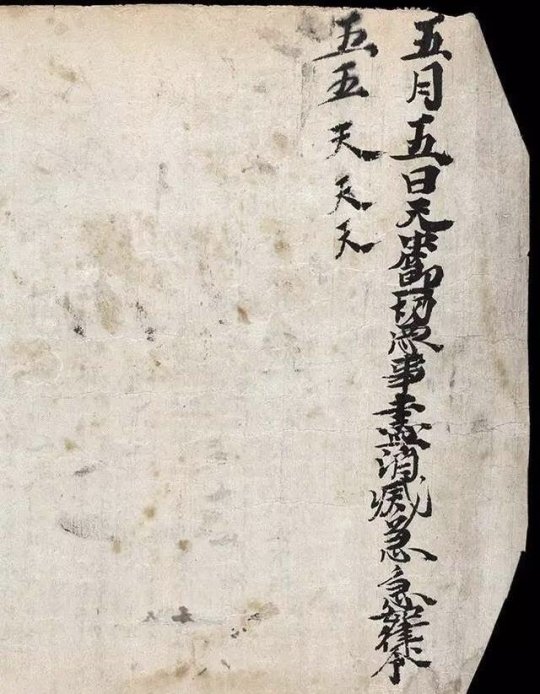
57 notes
·
View notes
Photo









Happy Duanwu Festival/端午节/端阳节/Dragon Boat Festival
758 notes
·
View notes
Text
May you be surrounded with alluring fragrance and the sweet or savoury taste of rice dumplings. Wishing all my food blog readers a memorable Dragon Boat Festival.
愿你被诱人的香味包围,享受着热腾腾粽子的甜蜜滋味,祝你过一个难忘的端午节。
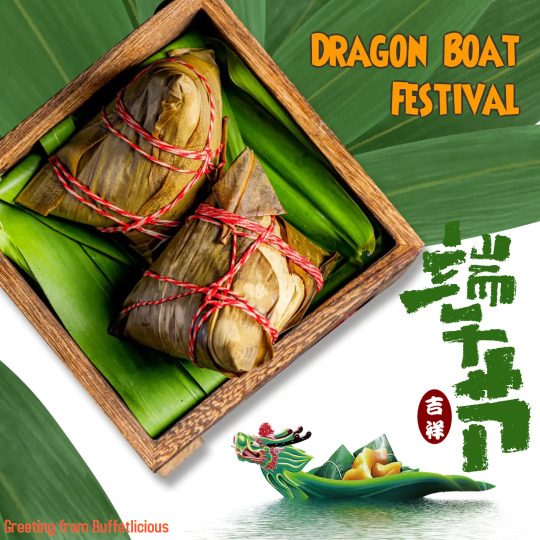
What is the legend behind the festival?
You may know that the Dragon Boat Festival (端午节/龙舟节) is meant to commemorate the death of the Chinese poet Qu Yuan, who died in the ancient state of Chu during the Warring States period (475–221BC), a bloody time when the different provinces of modern-day China fought endlessly against each other.
youtube
The patriotic poet Qu Yuan (屈原) was filled with despair about the state of his home and drowned himself in the Miluo River in Hunan province. According to legend, locals raced out in their boats to try and save him and threw balls of sticky rice into the river to protect his body from being eaten by fish.


However, it is also believed that the festival preceded before Qu’s tragic death, as a way to ward off bad luck. According to Chinese belief, the Fifth Lunar Month (农历五月) is “poisonous” because poisonous creatures, like snakes and scorpions, are active during the early days of summer. They also believed that people were more prone to illness during this time, so they held different celebrations to keep evil spirits, diseases, pests, and drought away.
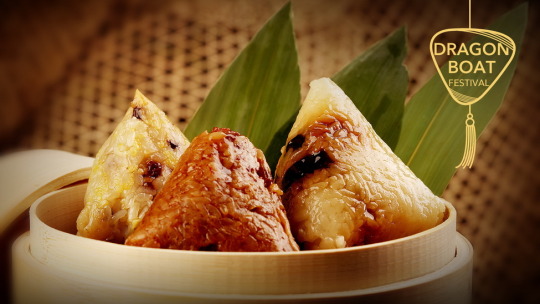
Selected images from here, here and here.
#Dragon Boat Festival#端午节#Qu Yuan#屈原#农历五月初五#Festival#Rice Dumpling#粽子#Glutinous Rice#Bamboo Leaf#Salted Egg Yolk#Chestnut#Mushroom#Chinese#Asian#Celebration#Video#Youtube#Food#Buffetlicious
19 notes
·
View notes
Photo

洛神 (Luo Shen) ~ ink and color on silk ~ Chinese artist Su Baidou
Luo Shen 洛神, the "Goddess of the River Luo" is a deity in ancient China. She is also called Consort Mi 宓妃, as Cao Zhi's 曹植 rhapsody Luoshenfu 洛神賦 states. Li Shan 李善 comments that she was the daughter of the mythical emperor Mi Xi 宓羲 (i.e. Fu Xi 伏羲). She had drowned when she crossed the river and was then transformed into a river deity. The name Consort Mi is already mentioned in the elegy Li Sao 離騷 by Qu Yuan 屈原. In the elegy Tianwen 天問 she is also called Luo Pin 雒嬪 "Lady of the River Luo" and is said to have been the wife of the Earl of the Yellow River 河伯. In Cao Zhi's rhapsody she is described as being of an utmost beauty and tenderness. There is also a Peking opera with the title of Luoshen 洛神.
http://www.chinabuddhismencyclopedia.com/en/index.php/Luo_Shen_洛神_The_Goddess_of_the_River_Luo
104 notes
·
View notes
Text
《楚辞》 渔父 - Songs of Chu: The Fisherman
by unknown, some say 屈原 (Qu Yuan, 340 - 278 BC)
what’s this ‘songs of chu’?
what about this passage ?
屈原既放,游于江潭,行吟泽畔,颜色憔悴,形容枯槁。
Exiled, Qu Yuan wandered by the river, murmuring to himself as he walked along the grassy banks, looking gaunt and careworn.
渔父见而问之曰:“子非三闾大夫与?何故至于斯?”
The fisherman saw him and asked, “are you not the Lord of the Three Clans? How did you end up in this position?”
屈原曰:“举世皆浊我独清,众人皆醉我独醒,是以见放。”
“All the world is muddied, and only I clean; all the world is drunk, and only I sober. Hence your observation of my exile.” Qu Yuan replied.
渔父曰:“圣人不凝滞于物,而能与世推移。世人皆浊,何不淈其泥而扬其波?众人皆醉,何不餔其糟而歠其醨?何故深思高举,自令放为?”
The fisherman said, “Sages were not mired by externality, and instead moved with the flow of their times. All the people of the world are muddied, so why not agitate the mud and cause waves to rise? All the people of the world are drunk, so why not partake in their food and drink their wine? Why deliberate so deeply and impose high standards upon yourself, only to cause your own exile?
屈原曰:“吾闻之,新沐者必弹冠,新浴者必振衣;安能以身之察察,受物之汶汶者乎?宁赴湘流,葬于江鱼之腹中。安能以皓皓之白,而蒙世俗之尘埃乎?”
“I have heard it said that those who have just washed their hair must dust off their headwear, those who have just bathed must flick their clothes to remove the dirt; how then can the clean body suffer filth and the impure? I would rather leap into the waters of the Xiang River to make my grave in the bellies of the fish there. How can the purest white be buried beneath the dust and dirt of worldliness?” Qu Yuan replied.
渔父莞尔而笑,鼓枻而去,乃歌曰:
The fisherman smiled, then began to laugh. As he rowed away, he was still singing.
沧浪之水清兮 可以濯吾缨
沧浪之水浊兮 可以濯吾足
The waters of the river are clear; they can be used to wash my crown.
The waters of the river are clouded; they can be used to wash my feet.
遂去,不复与言。
Thus he left, and they never exchanged another word.
..........................................................................................................
I was really quite curious after hearing this one to find out what it was about. If you’re wondering why the italicized part sounds familiar, perhaps you’ve come across it in Word of Honor. Perhaps you’ve seen @tian-chuang’s post.
While translating, I had a brief read of Baidu’s explanation and beat a hasty retreat! Not because I disagree or anything, but because I’m not familiar with the philosophers and writings quoted (Laozi, Zhuangzi, Kongzi) and it all confuses me… and what is that about the fisherman being a wise recluse because his stance reflects that of taoist philosophers? Yeah definitely not going to touch that....
The Fisherman reads to me like the clash of two worldviews, neither of them wrong or better than the other - but there’s no reconciling them.
Qu Yuan says: I would rather go to my grave in the bellies of fish than let this purity be tainted.
The fisherman says: Wise sages did not let themselves be mired by the world around them, and instead chose to adapt.
The former is idealistic and firm in standing by his beliefs, come what may, and absolutely willing to die for them if he must. The latter is pragmatic, seeing the world for what it is, and willing to be flexible to achieve his goals.
I think it’s pretty clear, at least in this short prose, who is having an easier time of it. Don’t you think? But then again, not being fish, who are we to speak of the happiness of fish?
22 notes
·
View notes
Text
This is me rambling over Dazai-sensei's shory story Blue Bamboo because I loved it, also this is a way for me to record my thoughts😅☺
All I can say is that I am in love with this quote by Dazai-sensei.
I've read through an comparative piece which lightly describes the differences Dazai-sensei made between the original Chinese short story, with Dazai-sensei's and this part is completely original. And is my favorite part of his rewrite.
Extract from Dazai's short story Blue Bamboo

And also the romantic and whimsical quality the short story has as well as subtle themes of genuineness and trustworthiness the short story has has me😭
Three times, Blue Bamboo (the woman whom the protagonist loved, but the translation is killing me but I can't think of a better way to translate the name😔) said "let me be by your side forever". This part according to the comparison I've read said that this part too is original. And up till the end Blue Bamboo still fulfilled her promise, no matter what form or appearance she took. And honestly, god how beautiful😭 And the fact that he added this, is he saying that he too wants this in a relationship (romantic or platonic)? To be able to see people fulfilling promises to the very end? Will this be another evidence for my theory, perhaps.
I love his allusions to other Chinese literature too! Some that I recognized (translation made it a bit difficult). But some of them fit Dazai very well😖
Also I just read the original version of the story and personally I preferred Dazai's version... Anyways-
(Tw mention of suicide) Like his reference to the famous Chinese poet 屈原 (Qu Yuan) of his most famous words 「眾人皆醉我獨醒」, which was translated to "the world is drunk I alone perceive the truth" (cries in translation). The complete phrase that is said by Qu Yuan is that he talked about the corruption of the Chinese royal court, and how he is the only one to not be tainted by the corrupt ways of the court, and that he alone perceives the truth that they are corrupt. The phrase that Dazai-sensei quoted is symbolic of this sentiment, using the world being drunk, vs him being sober, as a juxtaposition to covey how he is superior to the rest of the world. And thus, with this sentiment of being alone and different, he drowned himself in the river. Similar to what the protagonist of the short story felt like doing, this part is one that Dazai added, which is in a sense quite tragically fitting for Dazai😔
Also I think there was also a minor reference to this phrase in the end of the story in which Dazai-sensei wrote that the protagonist "buried himself in the dust of the world", I feel this is alluding to once again Qu Yuan, when he said that 「舉世皆濁我獨清」, basically saying that he is the only pure one in the world of the corrupt. But instead, here Yu Jung decides to live and dwelve in this corrupt world.
Also his reference to another poet and his poem whom he had mentioned the name of is 崔顥 (Cui Hao) and his poem 黃鶴樓 (apparently is translated to Yellow Crane Tower). He referenced the last verse of the poem 「日暮鄉關何處是?煙波江上使人愁」 which was translated to "paths that lead to home, where can they be? the misty waters only bring me grief". I mean the translation is not wrong but it lacks the meaning of the poem in it😖. The poem talks about a person being excited to go to this mythical place because he heard that there was a magical crane here, but then he realized that the crane was gone and all that is left is the yellow crane tower. As he looked out of the tower he saw a beautiful view, but as the sun sets he can't help but wonder where his home is. (I'm probably explaining the poem really badly😭 I know there's a lot more to it but translating is hard) I feel like this might've been a foreshadowing to what happened in the end of the short story when Yu Jung said "this is beautiful. I'd love to show my wife back home." As in both, despite the beautiful view ahead of them, and coming to a place that they wanted, they continue to think of home.
Also I have noted that Dazai-sensei referenced Confucius and his Analects. Which I was quite surprised to see that it was not referenced in the orignal story. But Dazai-sensei often wrote about Confucius' words on the 'way of the superior men' or what we call 君子. This way of the superior men is a very common and important concept in the past in China, and is often viewed and observed in that of Chinese literature. To be this of this "superior man" or better known as Junzi, one has to follow many rules as written in that of the Analects, Dazai-sensei has referenced some of them, but in short to be a Junzi is the ideal image of a man, or what was viewed as ideal in the ancient Chinese society, and is supposedly the life goal of a man. But it should be noted that to be a Junzi means to compare yourself and see yourself as better than some other people, that they call 小人, and even Confucius himself wrote in his Analects that Junzi should not associate himself with those who are in a sense "inferior", especially in terms of morals.
And yet, Dazai-sensei in this story says that "learning is a splendid thing, but to make a show of having risen above worldly affairs is cowardly and mean", and it should be noted that in Chinese belief, that learning is the way in which one can become a Junzi. Yet Dazai-sensei here is attacking this idea in which the Chinese viewed as superior, which is very enlightening and intriguing. I also think that Dazai-sensei might be trying to convey that by putting yourself in such a position and way of living, you will become perhaps unhappy and would lead to self-destruction (many Chinese writers of the past have expressed sense of isolation and loneliness due to them remaining Junzi) and I wonder if he is trying to warn against that, as he himself most likely knows that it is hurtful to the self? Maybe he's trying to say that though we may not be able to change society (something that Junzi desire to do) (perhaps symbolized by his relatives which he is still unable to impress) we can just simply change ourselves and keep living the way we do, as this would actually enable us to live happier, just as Yu Jung has in the end of the story.
Also also, the ending with the two women merging into one is quite interesting!🤔 One of which he "hates", one of which he "loves". Is this also referencing the quote that I have screenshot at the top, in which he said that we must endure through both hate and love?
Overall, I really enjoyed this story. It gave me a new take on the Chinese concept of Junzi, which I had always learnt to be the superior way of living in ancient Chinese society. I think this is my favorite short story thus far in this collection☺
#If you've read the short story and are confused by some of the allusions this can also serve as a bit of an explaination#spoilers below the cut#dazai osamu#japanese literatuare#chinese literature#literature#blue bamboo#spilled thoughts#kat rambles#kat rambles about dazai sensei#archive📁#kat's literature talks
20 notes
·
View notes
Text
Transcript: 屈原 Qu Yuan - 国殇 Our Martyrs
[Listen to the episode here.]
This is 国殇 Our Martyrs, by Qu Yuan.
grasping Wu pikes—wearing rhinoceros armour,
chariot axles enmeshing—short-swords joining.
banners blotting the sun—foes like clouds,
raining arrows twofold—men eager to be first.
my formation scattered—my line trampled,
my left horses dead—my right sword-gashed.
a duststorm for two wheels—traces a team of four,
“reinforcements!” the jade drumsticks—“attack!” the drums call.
the heavenly hour resents us—the mighty spirit rages,
sternly slaying first to last—hometown fields abandoned.
going but not coming—departing but not returning,
the plains untended—the roads unending.
bearing long swords—clutching Qin bows,
heads and bodies parted—hearts still untried.
indeed both courageous—and accompanied by Wu,
staunch to the end—broken by none.
bodies stopped in death—both spark and spirit,
steadfast souls—heroes among ghosts.
---
I haven't done a bilingual reading this time, you'll notice, for a couple different reasons.
First, it's long compared to the average length of the types of poem I focus on translation. And every time I've sat down to record this it's been brutally hot in my non-air-conditioned building (makes doing anything other than sleeping very hard).
Second, much of the vocabulary is deeply archaic even by the standards of classical Chinese poetry. Um, let's see, I've done readings of work by Li Qingzhao, that's Song dynasty or 1084-1155 CE. By Du Mu and Du Fu, that's slightly different parts of the Tang dynasty (803-852 and 712-770 CE respectively). Whereas the collection that this poem comes from, the highly foundational Chuci or Songs of Chu, dates from the third century BCE. And while Tang and Song poetry would've been performed in Middle Chinese, the Chuci would've been in a southern Chu version of Old Chinese. That is more than 2200 years of linguistic change, and as an amateur that is way above my paygrade. I don't know, I'm going a tangent -- modern Mandarin does not really resemble either Middle Chinese or Old Chinese, very much. Again, two millennia of linguistic change.
I mean, that said, this comes from such a well-known classic I'm sure there's no problem finding videos of other people doing readings of this poem.
2 notes
·
View notes